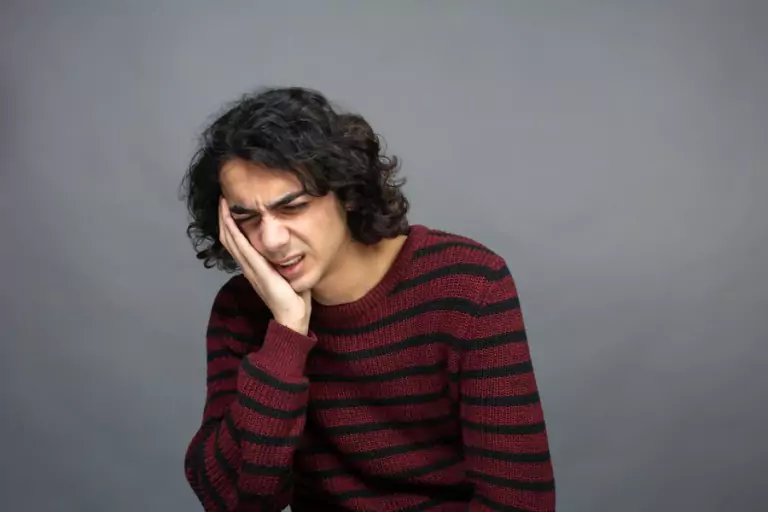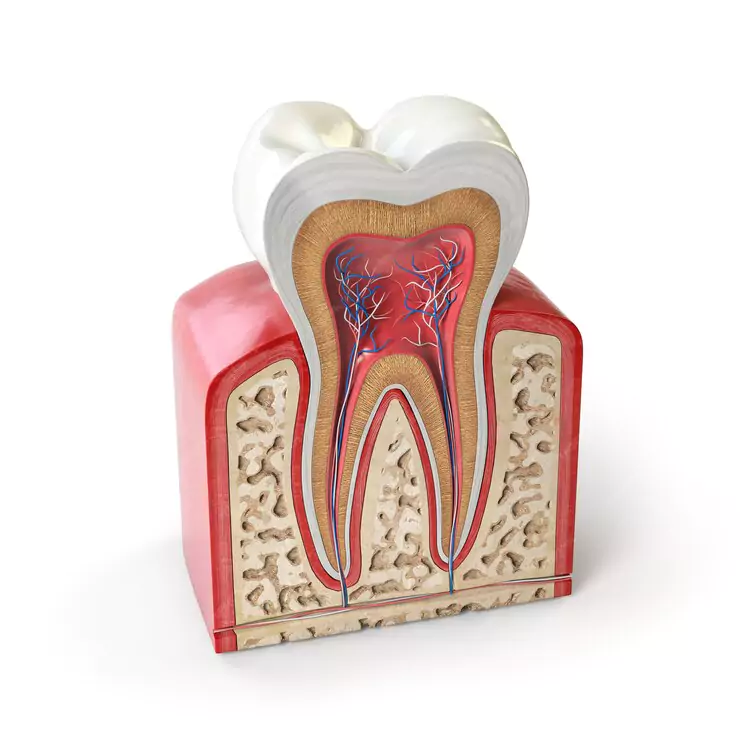
- Home
- About
- Our Team
- Services
- Postoperative Care
- Smile Gallery
- Medical Tourism
- Blog
- Offers
- Contact Us
- Home
- About
- Our Team
- Services
- Postoperative Care
- Smile Gallery
- Medical Tourism
- Blog
- Offers
- Contact Us

While a root canal is a common treatment, it can cause lasting discomfort, a throbbing ache that appears to repeat the trauma of your suffering. While most individuals feel little pain following a root canal, some suffer continuous throbbing, which can have a substantial impact on their lives. This blog discusses the cause of and how to stop throbbing pain after a root canal, allowing you to recover comfort and move on from the pain.
People may have root canal treatment to save a tooth that is severely decaying or diseased. When the inner component of the tooth, known as the pulp, is destroyed due to deep cavities, fractures, or trauma, it can produce significant pain and result in an abscess. A root canal removes the injured pulp, cleans, and closes the tooth to prevent further infection, maintaining the original tooth and reducing pain.
Various things might induce throbbing pain after a root canal:
Inflammation: As a normal reaction to the operation, the tissues around the treated tooth may become irritated, resulting in tooth pain.
Infection: If germs are not entirely eradicated, or if new bacteria enter the tooth, an infection might form, causing discomfort.
High Bite: If the filling or crown used after the root canal is excessively high, it might create pressure and pain during biting or chewing.
Tooth Fractures: The tooth may have little cracks or fractures that were not found during the surgery, causing discomfort.
Temporary Filling Issues: If the temporary filling isn’t adequately sealed, it might cause discomfort and suffering.
Healing Process: Some discomfort is expected while the body recovers, and the tissues around the tooth may be sensitive.
If the discomfort persists or increases, you should see your dentist to treat any concerns.

Throbbing pain following a root canal is typical, but there are numerous effective ways to alleviate the discomfort. Here’s how:
To ensure optimum recovery, please follow any aftercare advice recommended by your dentist. These guidelines frequently involve avoiding particular meals, taking prescribed medications, and maintaining proper dental hygiene.
Over-the-counter pain relievers such as ibuprofen or acetaminophen can control discomfort and inflammation. Your dentist may suggest other drugs to alleviate particular pain symptoms.
To minimize swelling and pain, apply a cool compress to the outside of your cheek near the treated region. Use it for 15-20 minutes, then take a break to prevent skin irritation or over-chilling.
Keep your head raised, especially when sleeping, to alleviate swelling and discomfort. This posture improves blood circulation and lowers pressure on the afflicted tooth.
To avoid infection, practice proper dental hygiene by gently brushing and flossing the treated region. To preserve sensitive gums and teeth, use a soft-bristled toothbrush and avoid brushing too vigorously.
Eat soft meals and avoid hard, crunchy, or sticky foods that may irritate the treated tooth. Choose soups, yogurt, and mashed potatoes to reduce chewing pressure.
Rinse your mouth with warm salt water and gently swish it around your mouth before spitting it out several times each day to relieve gum pain and inflammation.
Stay hydrated by drinking lots of water throughout the day. Avoid dehydrating drugs such as alcohol and coffee, which can slow the healing process.
Apply a tiny quantity of clove oil to the afflicted region with a cotton swab. Clove oil contains natural analgesic qualities that can give short-term relief from pain and discomfort.
If the pain persists or worsens, call your dentist right once for additional examination and treatment. Your dentist can detect any possible issues, such as infection or poor healing, and provide suitable therapies.
By following these complete tactics, you may successfully control and eliminate throbbing pain following a root canal, resulting in a smoother and more comfortable recovery.
Dealing with throbbing pain after a root canal can be difficult, but it’s vital to realize that this discomfort is usually short. You may speed up the healing process by taking proactive activities, including following your dentist’s instructions, employing appropriate pain management strategies, and implementing supportive care measures. If your discomfort persists or worsens, do not hesitate to seek expert assistance. Providing correct care and attention to your post-root canal rehabilitation will allow you to resume regular activities with a healthy, pain-free smile.